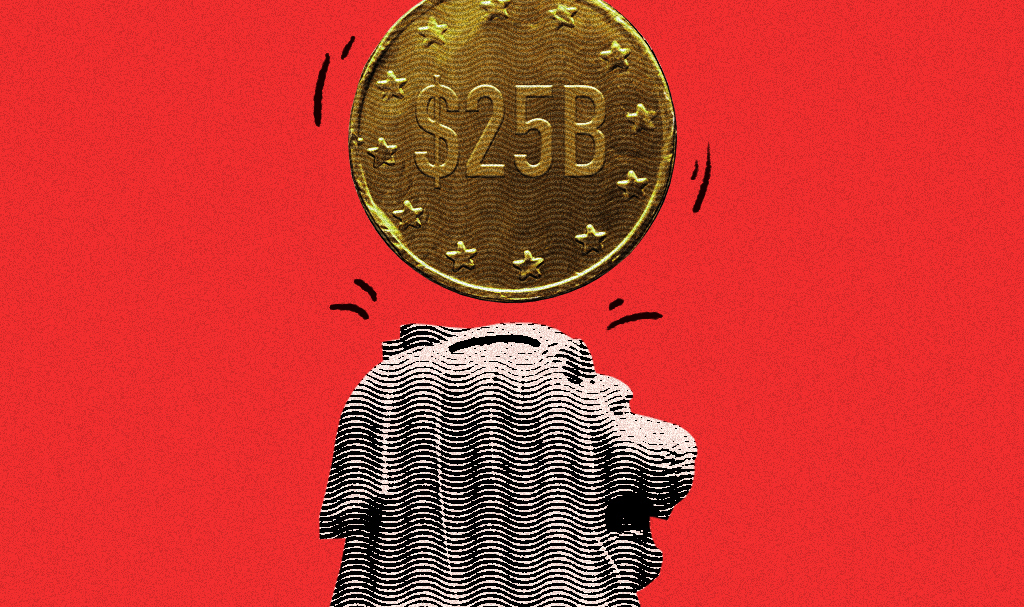[ad_1]

AsianScientist (Dec. 11, 2020) – Despite—or perhaps because of—the challenges brought on by the COVID-19 pandemic, the Singapore government has earmarked S$25 billion to advance the country’s R&D landscape up until 2025. Known as the Research, Innovation and Enterprise (RIE) 2025 plan, the record-breaking sum lays the groundwork for the Republic’s science and technology efforts for the next five years.
The current budget represents a 31 percent increase over the S$19 billion funding (RIE2020) allocated from 2016 to 2020. Similar to RIE2020, around one percent of Singapore’s gross domestic product will be annually budgeted for RIE2025. The sustained investment should steady the nation’s R&D sector even amid the economic boom and bust cycles brought about by crises like COVID-19.
Indeed, the capabilities built during RIE2020 played a crucial role in Singapore’s coronavirus response. Homegrown diagnostic kits—including the Fortitude and cPass tests—and the ongoing mRNA COVID-19 vaccine trials were all made possible thanks to the budget.
In light of the previous plan’s success, RIE2025 will continue to address nationally-relevant research, cultivate talent with global impact and support basic science. The budget will also expand upon the four strategic domains laid out in RIE2020, namely: manufacturing, trade and connectivity (MTC); human health and potential (HHP); urban solutions and sustainability (USS); and Smart Nation and digital economy (SNDE).
With the Republic having cemented its place as a global manufacturing hub, the MTC domain aims to strengthen the nation’s trade and connectivity sectors—especially in industries like aviation, sea transport and logistics among others. For instance, artificial intelligence (AI) can be used to enhance air traffic management, and even fully automate port operations.
Given that Singaporeans live an average of 84 years, the HHP domain will focus on cultivating healthy and meaningful experiences from early development all the way to advanced age. To this end, a new Science of Learning in Education Centre (SoLEC) will be established to develop interventions that enhance lifelong learning.
National Clinical Translational Programs like Precision Health Research Singapore (PRECISE) and Programme for R&D for Epidemic Preparedness and Response (PREPARE) are also set to help Singapore face pressing public health issues.
In the USS domain, efforts will center around ensuring sustainability and resource resilience to reduce the country’s vulnerabilities to global supply chain shocks as well as improve liveability. These efforts will include achieving the 30 by 30 food security goal, improving decarbonization technologies and working towards becoming a zero-waste, circular economy.
Recently, Singapore was recognized as the most innovative economy in Asia for the seventh consecutive year. As a result, the SNDE domain aims to reinforce the country’s position as a digital innovation hub, by deploying frontier technologies in unexpected ways. AI and 5G, for instance, can be deployed in cybersecurity, while blockchain can be used to certify the origins of food and medicine.
Nearly 5,000 postgraduate scholarships will also be made available over the next five years in cutting-edge research fields, as well as 1,000 new traineeships and job positions. To further drive innovation, a new fellowship program will be launched to expand the pool of inventors and entrepreneurs who can drive translational research.
Of the S$25 billion sum, 29 percent (S$7.3 billion) will be set aside for capability-building in local universities and A*STAR research institutes. Meanwhile, 26 percent (S$6.5 billion) will go towards supporting the expanded missions of the RIE domains, followed by 21 percent (S$5.2 billion) for new innovation and enterprise activities. Finally, 15 percent (S$3.75 billion) and 9 percent (S$2.2 billion) will respectively support emerging ‘white space’ research opportunities and talent development programs.
“The investments are significant and underscore Singapore’s commitment to investing in research, innovation and enterprise.” said Deputy Prime Minister Mr. Heng Swee Keat, who is also chairman of the National Research Foundation. “By working together to realize RIE2025, we can emerge stronger from this crisis and create more and better opportunities for our businesses and workers.”
———
Copyright: Asian Scientist Magazine; Photo illustration: Lam Oi Keat/Asian Scientist Magazine.
Disclaimer: This article does not necessarily reflect the views of AsianScientist or its staff.
[ad_2]
Source link